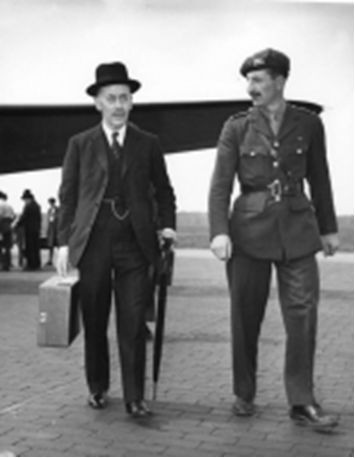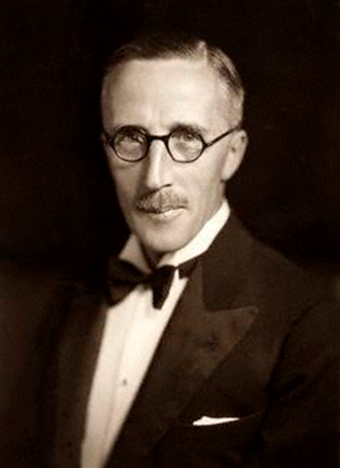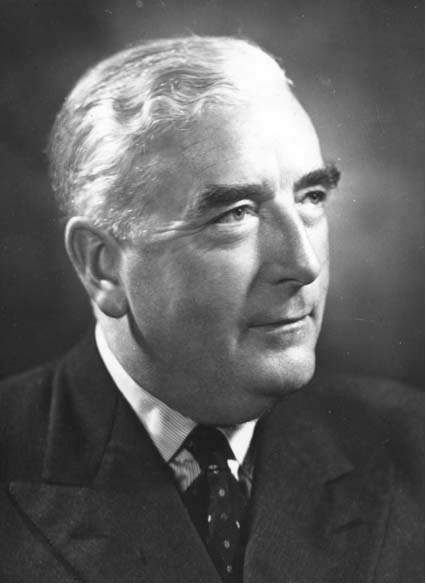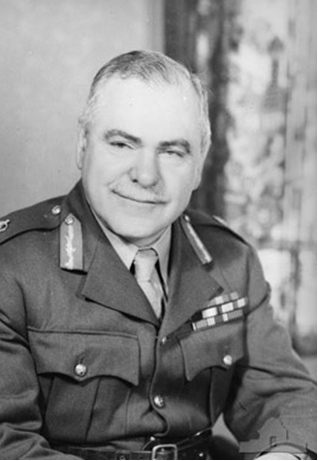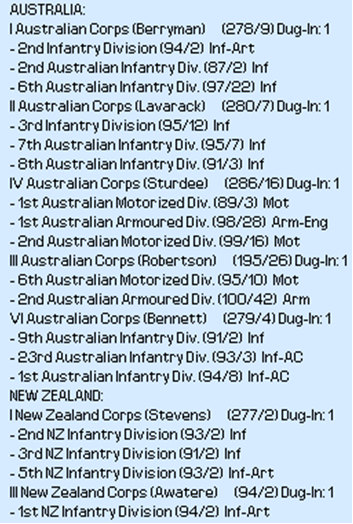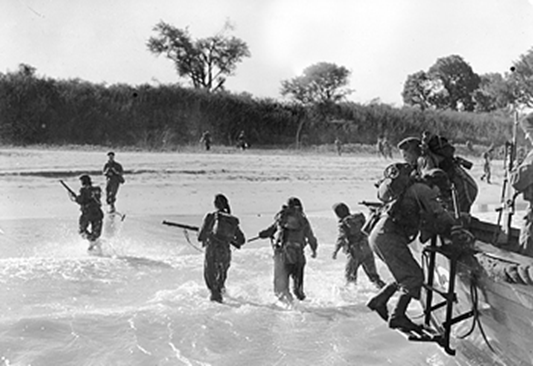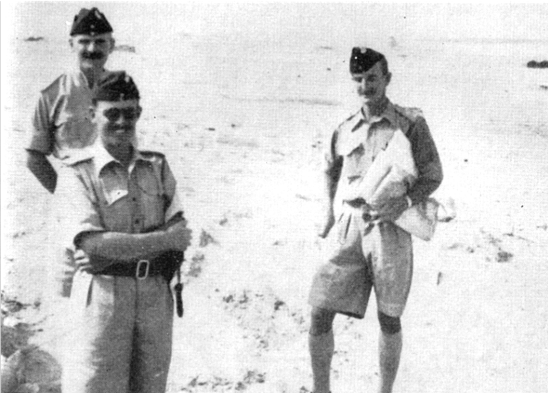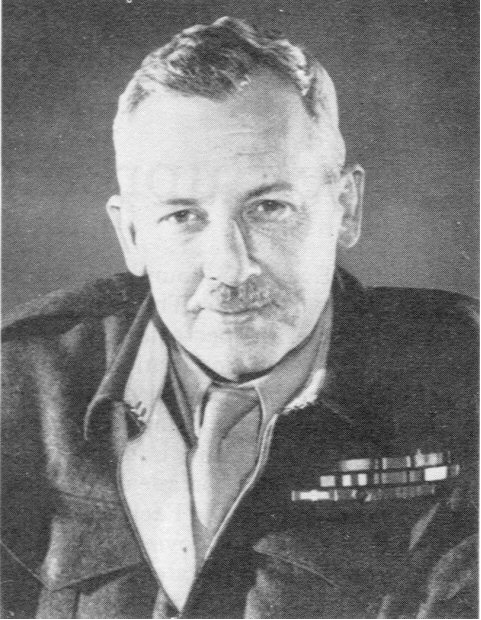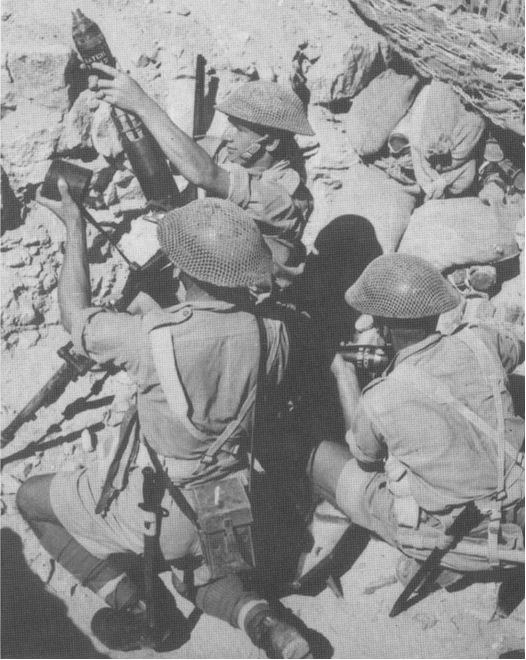Chapter 198, off Dalangang, Hainan, 15 May 1942
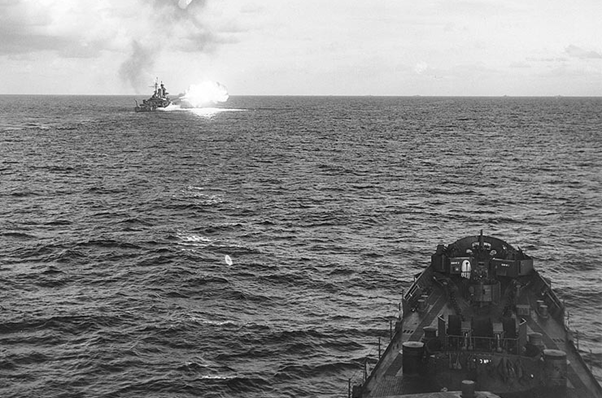
The battleships and cruisers of the Fleet opened fire as soon as they had the range. HMS Durban, an elderly light cruiser that had been designated as a close escort for the transport flotilla, waited until the exact second of the designated hour before issuing a flurry of signals to the motley collection of transport ships. The transports containing senior officers (which in Operation Longbow terms was a battalion CO and above) were sent last minute confidential signals. Belsay, as a CO, had the benefits of being able to watch the opening salvos from the bridge of their cramped transport. He was wordlessly handed the confidential signal, which suggested in very vague terms that the enemy were estimated to have two understrength infantry divisions and support troops on the island, of whom one division could be expected to deploy in time to face V Corp’s attack. His men were ready (the men on this ship anyway, for 10 DLI were embarked in three transports) to clamber into the small boats that would carry them into ‘Durham’ beach, but many of them, curiously gazing at the warships now commencing their bombardment of the shores opposite, were hanging back to look at the spectacle unfolding before them.
“Someone’s cocked it up,” a Naval officer, a lieutenant, muttered as he pushed past Belsay. “Fourth Division have just made their beach.”
There were muttered curses as all present realised that the element of surprise, precarious anyway, was now blown wide apart. The master of the transport, looking at the scowling Royal Navy liaison, turned to Belsay. “Colonel, can your men be made ready to land?” The man was a kindly man, a Cornishman who, despite his poor leadership skills, was a first-rate ship-handler.
“We’re ready to go, as long as the other transports follow us in.”
The master and the lieutenant both nodded. Belsay was surprised when the master, with some emotion, shook his hand as he made to leave the bridge.
The men were nervous: Belsay sensed it from the second he clambered down into the small ‘motor whalers’, small slender craft with a single spluttering engine that would carry them to the beaches. As they approached the plan was that a small ‘forlorn hope’ of sailors and soldiers would go ashore and test the defences; most of Belsay’s men would follow and support the attack. But their nervousness was obvious. Wilkinson, one of the ’41 intake of young troops, was dry-retching and Dobson, next to him, looked distraught. But, and here Belsay allowed himself to be almost cheerful, there were some who were coping brilliantly. Smith, a man already earmarked for promotion to corporal, was helping some of the clumsier men into the boats and Lieutenant Copfield, one of the stars of the battalion, was keeping a professional eye on his men.
“Don’t wallow in the water,” he said clearly, addressing all in the boat, “but push ashore. If you get a moment, drink some fresh water, dry your feet, change your socks. I will not have a member of this company going down with rotten feet.”
Belsay smiled as RSM Holgate, next to him, rolled his eyes. But Copfield was a brilliant young officer and Belsay hoped that he would be spared a premature death on this Chinese shore. From the transport the sea had looked as flat as a millpond. As their craft increased speed Belsay groaned as each rise and fall took its toll. He was not the only one suffering; Holgate was trying (and failing) to conceal his seasickness and Major Barnard looked equally green. As the whaler craft bounced its way to the objective Belsay realised that the worst thing about this ordeal was the waiting. Their boat was low in the water with low sides and as a result they could all see the long, thin beach ahead of them. After a gentle rise the beaches seemed to give way to scrubland covered in tall grass; Belsay prayed that it wasn’t marshland which would slow his men’s rush inland and prove a nightmare when it came to landing trucks and heavy equipment. A more promising stretch of beach lay to the North; Belsay sensed that ‘C’ Beach would be easier than their ‘D’ Beach.
Holgate took refuge from the swell of the sea by stern adherence to duty. “Not long now lads, make ready.” Most of them were ready, but nevertheless the corporals and sergeants stumbled up and down checking the preparations. Belsay looked around at the boats from the other transports; each boat was going in with the others from its particular transport ship. But there were three clumps of DLI boats chugging in to ‘D’ Beach. Ahead, the first boat had slid into the sand: the landings had begun.
Belsay was beginning to relax when a metallic pinging started near the bow. A Royal Navy rating was thrown back in a stark reminder that they were at war. As he pushed through his men to investigate he realised that they were under fire.
Oh marvellous – they’ve got us lined up already thought Belsay. Their little whaler started to shake as it approached the beach. Belsay, clutching his stomach, now heard the sound of gravel against the hull. In the distance he could make out smoke, followed by the noises of war, screaming, shouting, gunfire. A sudden jolt pushed him forward and then back. They had ran aground. As the sailors struggled to secure ladders for the soldiers Belsay could make out the chaos on the beach ahead of him.
“Sodding hell! We’ve stopped short of the beach!” That was Barnard, commander of one of 10 DLI’s rifle companies, who had swung his legs over the side and had impatiently jumped into the sea. The water was just above the knee and with a cheer the rest of the boat’s occupants followed Barnard, who was racing up the sand towards the tall grasses. Half a dozen light infantrymen were dead with the same number of wounded. Belsay saw some of his younger men hesitating to clamber into the water.
“Now lads, the rest of the battalion will be here as well, so just get off the boat as quickly as you can and push ashore.” As he said that he caught his webbing on a one of the lines, which swung him off his feet and unceremoniously into the water, which was much colder than he had expected. Trying to maintain some dignity, Belsay struggled to his feet, tripped and fell sideways, falling face first onto the beach. He was fortunate, as the line of trees suddenly erupted with machine gun fire and those infantrymen without cover were felled.
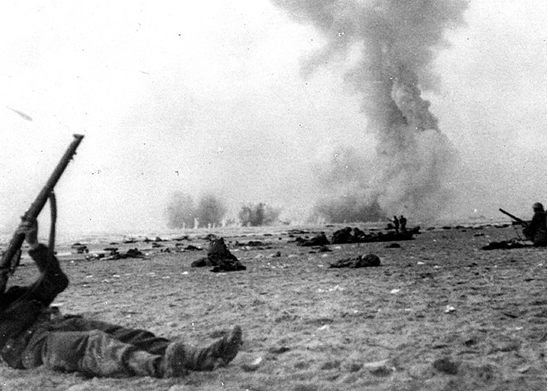
Japanese fire also mowed down the more timid men who hesitated off the boat. It was terrifically loud. Wet, cold, and completely confused, Belsay began to crawl ashore as the second and third group of boats thudded into the beaches. The numbers began to tell as the men, devoid of organisation and control, simply ran forwards to tackle the concealed enemy machine gunners. RSM Holgate, roaring at a decimated platoon, suddenly spun around as a bullet ripped through his shoulder. Belsay struggled over to direct them when he stumbled again on the shingle beach. Thankfully, Barnard spotted his stumbling progress and dragged him ashore.
“Sir, thank God! One of the lads saw you fall. The RSM’s wounded, it looks pretty bad. Lumley’s men are already off the beach, but I’ve not seen Major Lumsden’s craft. What are your orders?”
“Keep pushing ashore. We’ll deal with the enemy,” Belsay paused, struggling to catch his breath, “we’ll get everyone off the beach, and then we’ll form up. If we try it now we’ll be slaughtered!” They ducked as a Naval shell landed close by. Belsay grabbed Barnard’s arm. “Get ‘em inland Harry!” Barnard nodded and ran over to his company.
Well, we’re ashore, thought Belsay as he again had to take cover. His boots filled with water, the Colonel waddled to the line of trees, and then cursed.
‘D’ Beach, so gentle and (fairly) lightly defended, had now revealed itself to be a poisoned chalice. For beyond the thin beach was a rice field. A huge, open, soggy field with (presumably) a horde of Japanese enjoying the lack of options open to the British. Belsay, watching from the crest of the sand rise, turned to see his officers smiling, obviously pleased to be ashore and fighting.
“Some of these dunes will be ideal to put mortars in. Is the mortar platoon ashore?”
Barnard, acting 2IC and adjutant (for both were missing) shook his head. “I’ll find them.”
“Do, and do it quickly. After this bloody paddy field there’s a load of bloody woodland where the Japs will probably be waiting for us. Where’s Surtees?”
“No sign, Sir. We’ve got two full-ish rifle companies, most of the pioneer and mortar platoons and nothing from the HQ and anti-air chaps.”
Belsay looked at Captain Ebdon, a sobre, sensible officer who looked older than his thirty-eight years and who had formlerly been an officer in the Territorials until, out of duty, he had transferred to the regular Army and volunteered for 10 DLI. He was clutching a map and Belsay felt grateful for his foresight. “Jimmy, you’re in command of the beach. Organise the troops as they land, brief them as fully as you can and try and find the bloody HQ boys.”
Ebdon saluted and wandered down to the waterline, where another two boats beached themselves. Watching with approval as Ebdon cajoaled the new arrivals into order, Belsay pulled at Barnard’s sleeve and dragged him out of earshot. The battle, as if my mutual consent, seemed to have reached an interlude.
“This is a prize bollocking shambles. Poor Valentine’s lost somewhere on the high seas and I’ve not seen any of the HQ Company. Take over the rifle platoons, they come to a half-battalion, and push us out of that damned paddy field. Use the mortars to support you.”
“Yes Sir, and where will you be?”
“Me? Hoping to God that amongst the reinforcements is our bloody Brigadier! Someone needs to exercise a proper command over this landing.”
Belsay left Barnard organising his company. Shaking the sand off his pistol Belsay strode along the edge of the marshland. A section of men from the Royal Northumberland Fusileers, part of the same brigade as Belsay’s battalion, wandered past, seeming dazed.
“Excuse me, Sir,” their spokesman, a sergeant, asked in a slow voice, “where is our regiment?”
“Haven’t a sodding clue,” Belsay said viciously, “but my men are over there. Go and ask for a Major Barnard, you’re in the DLI today lads.”
“Thanks Sir,” the sergeant said wearily, and wandered off. It was chaos. Bands of infantrymen wandered the beach looking for their parent units. Belsay was heartened to see that there were only a handful from the DLI; those who he met were directed towards the clearing where Barnard was marshalling the troops. But the Northumberland Fusileers were spread all over ‘D’ Beach as were the Green Howards, half of whom were trying to form up despite the fact that they had originally been destined for ‘C’ Beach. Belsay, as one of the senior officers on the beach, was often sought to give orders and direction. He sent them all in Barnard’s direction; the DLI thrust off the beach would be the ‘D’ Beach survivors’ thrust.
He found the temporary Corps HQ at the junction between the ‘D’ and ‘C’ Beaches. A cluster of tents marked the medical clearing station and Lieutenant General Morgan’s forward command post. As the only officer with knowledge of the push inland from ‘D’ Beach to reach them, the staff officers pushed him inside to where a full Lieutenant General was looking intent at a map.
“Lieutenant Colonel Belsay,” the aide announced, “CO of 10th DLI.”
“Well Colonel,” Morgan said in a dispirited voice, “how is ‘D’ Beach?”
“Chaos, Sir,” Belsay said, throwing caution to the wind. “Half my battalion never even made it to ‘Durham Beach’ and I’ve got the others preparing a push inland.
“How many men do you command?”
“Around three hundred of my battalion, and anything up to a hundred and fifty odds and sods from the other regiments that got to the Beach.”
“Do you need anything?”
“Air support from the Navy. The further we get inland the tougher their defences.” Belsay drew the Japanese lines that he knew about on Morgan’s map. “And we need a decent command structure at ‘Durham Beach’. Sir, you’re the first man senior to me that I’ve seen.”
“We’re in grave difficulty,” Morgan said, handing Belsay a canvas bag. “Take this chocolate and go back to ‘D’ Beach. You’ll get a division HQ as soon as I can arrange it. Until then Colonel, ‘Durham Beach’ should belong to the Durhams. It’s your command. I’ll have my aide draft a note to that effect.”
Leaving Morgan’s tent with the prospect of an independent command, Belsay strode purposefully back to ‘D’ Beach. North of him, ‘C’ Beach was starting to resemble the confident descriptions of the plans. The plumes of smoke and the sounds of machine gun and rifle fire told Belsay that at ‘C’ Beach at least, the 23rd Division were taking the fight inland.
Belsay reached ‘D’ Beach and saw that Captain Ebdon was doing well; each boat was directed carefully as it arrived and units were now moving to join Barnard’s position properly organised and with officers and NCOs leading them.
“Sir, news?”
“No, I saw the General, he’s going to send someone down here. Until then we handle things as best we can. How are things here? Any news of Major Lumsden? Or Captain Surtees?”
Ebdon shook his head slowly. “But some of their men are here. And Major Barnard has drawn up the mortars at the dunes,” he pointed with his pistol to where a line of three inch mortars were being prepared to support the push.
The loader slid the projectile down the tube whilst the gunner worked to get the correct elevation. A waved hand from a sergeant signalled that the mortars were needed. The firing pin was pulled, igniting the charge and firing the weapon. The tube slid as the teams worked hard to reload weapon. Impressed and relieved, Belsay returned to the battalion.
A rifle company from the DLI were sweeping the left flank for the few remaining Japanese troops. Barnard saluted Belsay as he returned. “Sir, I’ve cleared the edge of this damned field, we know that the enemy has a line of guns ahead. I’ve started a mortar attack.”
“Well done, I’ve seen the mortars,” Belsay said reassuringly. “You’ve done well. We’ll advance in stages,” he said confidently. “Take your company and advance on the right, are those Lumley’s boys on the left?”
“Yes Sir.”
“Keep them there, have them follow that dirt track and flank ‘em. I’ll make a cautious advance through this marshland with whatever’s left.”
Barnard frowned. “You’ve got a very mixed up bunch, Sir.”
“It’ll have to do,” Belsay said tersely. “We need to keep the momentum.”
Thus deployed, the two strongest elements of the three staged advance, the strong, cohesively organised troops of Bernard and Lumley, crept up towards the distant treeline that marked the end of the paddy field. Belsay led a ragged advance straight up the centre. In normal circumstances he would have baulked at a direct advance but the motley collection of infantrymen, support troops and sailors made slow going through the fields. The marshland was sticky and slippery and in the end they advanced more by crawling.
“Sir,” Lieutenant Copfield said as he knelt next to Belsay. “My platoon has spotted the main enemy battery. A load of old 38s.”
“Never heard of them. Are they capable?”
“They seemed well served,” Copfield said, ducking as machine gun fire opened up on the advancing files. A few men screamed as little columns of water were thrown up. “The guns fire thirteen pound shots”.
“So that’s why we were pummelled coming in”, Belsay said bitterly. “Alright, I’ll make some noise why your platoon creeps in and takes em out.”
“Yes Sir,” Copfield said eagerly.
“But no amateur heroics. Watch out for their machine gunners; Lumley and Barnard will hopefully join you soon.”
Copfield and his men waded forward; Belsay halted the advance of his ‘waifs and strays Company’ and prepared them to offer covering fire. “Waifs and strays, give ‘em hell. Covering fire!”
The paddy field erupted as the medley of troops offered a thick, if wild, fire against the Japanese machine gunners. Belsay could see Copfield’s platoon inching forward against the artillerymen. Next to Belsay Corporal Hewitt was plucked back with a bullet in his arm, screaming defiance as blood seeped from from the wound. Belsay looked around and yearned for Copfield to finish off the artillery men.
A crash of rifle fire announced that on the right flank Barnard, safe, capable Barnard, had arrived to surprise the machine gunners. Directly ahead of him Copfield’s platoon opened up on the startled gunners. A few of his men were cut down but Copfield urged them on and they overran the Japanese positions. The machine gunners, caught between their careful defence of Barnard’s attack and this sudden, unnerving violence in their own lines, began to pull back. With order, and energy, the Japanese commenced a fighting withdrawal.
Belsay and his force reached the lines just as the withdrawal became a retreat. A few parting shots took an infantryman or two but the position was taken. Shots to the left signalled that Major Lumley’s company had arrived on that flank.
“Sir!” That was Copfield, waving to Belsay and Bernard. “I think you see this!”
Belsay and Barnard trudged wearily to a rise where Copfield pointed, helplessly, to the terrain beyond the captured line. Belsay and Bernard looked for a second, and then their hearts sank. For the DLI had charged across one paddy field only to discover more of them beyond. Belsay felt utterly exhausted, and the battle was only a few hours old.
[Game Effect] – Operation Longbow. And oh what fun it is!
Many of you (particularly the El Pips of this world) have noticed that intelligence on the Japanese defences was particularly lacking: that, and the lack of secrecy, are the main failings in a troubled expedition. In game terms I risked it, knowing that the Japs had a large force, really to test the mettle of the Japs and their puppet forces on the island.
A much larger ‘game effect’ bit in the next update, as the dust settles after the first landings. This update is very much a war story: I landed 3 INF divisions on Hainan and they engaged the Jap army. More than that, particularly the aftermath, will be discussed later. For now, 10 DLI are ashore, in muddle and confusion, and are doing their best to take and hold their objectives.
El Pip: I don’t think that the conspiracy accusations would necessarily reflect Curtin’s personal view – I think it’s more a case of them reacting to anti-pom feeling amongst the public.
Zhuge Liang: Whilst this isn’t as dramatic as Curtin’s OTL declaration, it is a serious issue and could deteroriate further.
DonnieBaseball: For all his ‘cold fish’ persona, Cadogan was an excellent diplomat and really tried for his country OTL.
Enewald: The collapse of the Aussie economy beckons!
Nathan Madien: Less sentimentally loyal to the UK is the obvious difference. I doubt that he will simply commit troops to 4th Army without a huge list of demands for the defence of Oz. And possibly pro-American, though as the USA isn’t obviously the dominant power (yet) this might be tempered somewhat.
Sir Humphrey: He certainly is!
 )
)






